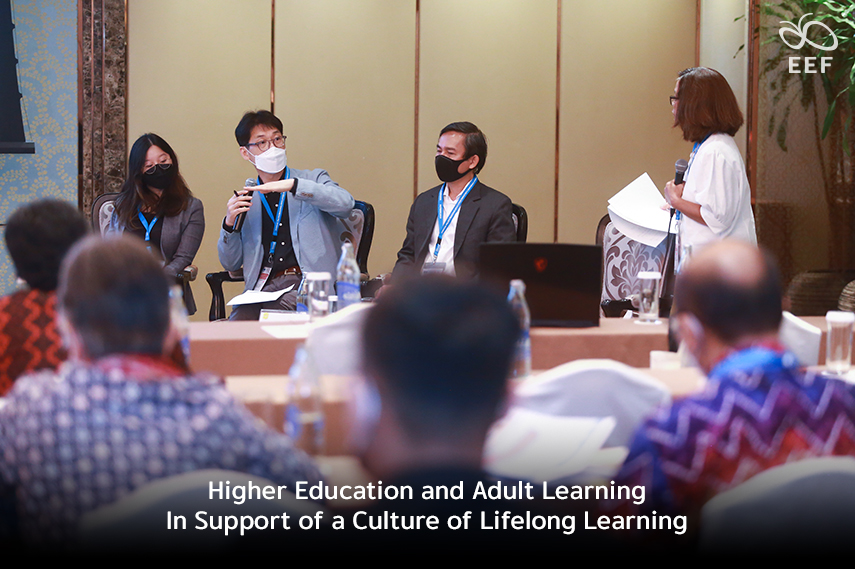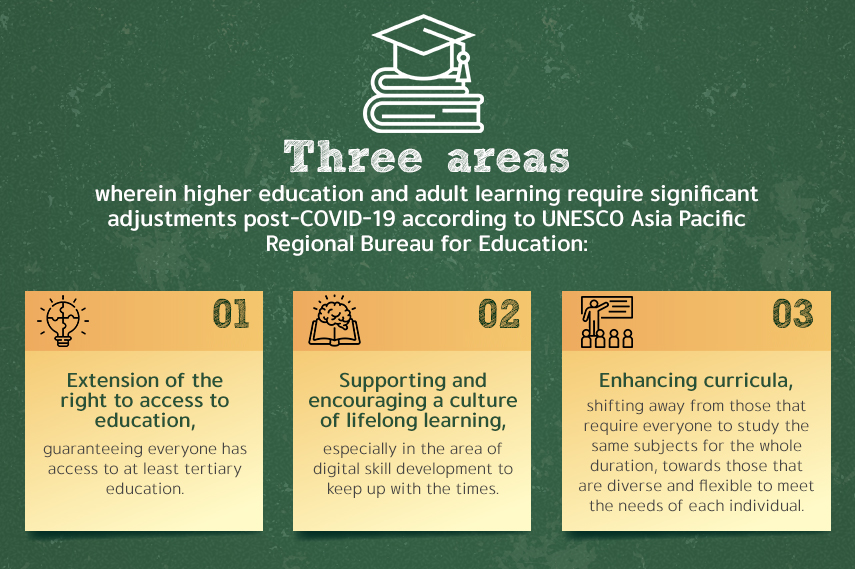
The COVID-19 pandemic has crippled educational systems around the world, bringing them to a halt and forcing the closure of nearly all schools. All teaching activities must be canceled or postponed indefinitely. As a result, learners miss learning opportunities and continuity in their learning. This is even more so in the case of higher education and adult learning. Before the COVID-19 outbreak, there were 456 million adults with illiteracy in the Asia-Pacific region. On top of that, there is a problem of inadequate financial allocation, as less than 1% of the national budget is allocated to adult education nationwide in 47% of the region’s countries. And the situation has gone south since the COVID-19 outbreak.
Post-COVID-19, according to UNESCO’s Asia and Pacific Regional Bureau for Education, higher education and adult learning require significant adjustments in the following 3 areas:

Asia-Pacific countries are currently promoting higher education and adult learning to cultivate a culture of lifelong learning in hopes to enhance their citizens’ competitiveness in the labor markets. In doing so, each of the countries has its approach.
Malaysia has introduced a Micro-Credentials system, which now operates in parallel to regular education. Learners can earn credits from courses that follow particular curricula and, when accumulating them to the required threshold, receive certificates from the government that can be used to apply for jobs in the future. Thanks to its flexibility and responsiveness to the needs of learners, this system might eventually replace the current educational system in the future.
The Thai government supports a network of community learning centers nationwide through its policy, financial, and public relations efforts. This is done so to raise public awareness of lifelong learning, change attitudes towards non-formal education, and introduce information technology to support teaching and learning. This creates opportunities for equitable and comprehensive access to education and ensures the adult population’s full integration on an equal footing in society and work.
Vietnam not only has amended its constitution to include the term “lifelong” in the definition of the right to access to education but also holds an annual campaign for lifelong learning, supported by a network of more than 11,000 community learning centers across the country, to encourage learning activities at the family and community levels. This guarantees lifetime access to education for Vietnamese citizens. Besides, to give the citizens even greater opportunities to compete in the job market, there has been an effort to standardize accreditation of educational qualifications for formal and non-formal education using the same exam mechanism.
South Korea, in response to the decline in demand for higher education brought on by its entry into an aging society and COVID-19, has adopted a credit banking system. Learners starting from the secondary level can select from various courses from different curricula and accumulate credits up to the required threshold to receive certificates. To make sure courses are more accommodating to adult learners, it has also assisted educational institutions in adjusting teaching methodologies following the age groups of their learners, which leads to truly lifelong learning.
Source: 2ND ASIA-PACIFIC REGIONAL EDUCATION MINISTER’S CONFERENCE (APREMC II) – Session 4

